Turkey Holds the Nordic Countries at Gunpoint: Implications for NATO[Over] 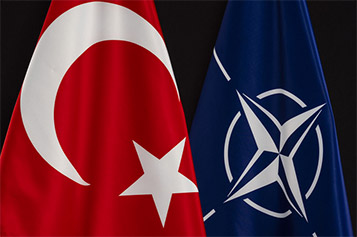 By Eugene KOGAN, Tbilisi-based defence and security expert By Eugene KOGAN, Tbilisi-based defence and security expert
It is a paradox that two democratic Nordic countries that are willing to join NATO and become interoperable with it are kept at bay by pseudo-democratic NATO member Turkey. As long as this situation persists, Russia strategically has the last laugh. This could have been avoided if the proposed policy recommendations had been implemented by NATO some time ago.
To begin with, it is crucial to recall a preamble to the North Atlantic Treaty (Washington Treaty 1949), namely: ‘The Parties to this Treaty are determined to safeguard the freedom – founded on the principles of democracy, individual liberty and the rule of law’. Obviously, these principles have been repeatedly trampled upon by Turkey’s President Recep Tayyip Erdogan over the last decade. And now, two democratic candidates for NATO membership, Finland and Sweden, have to fulfil conditions virtually imposed by the pseudo-democratic government of Turkey. This is a worrying paradox. READ MORE
Armenia and Azerbaijan Prepare to Make Peace[Over]
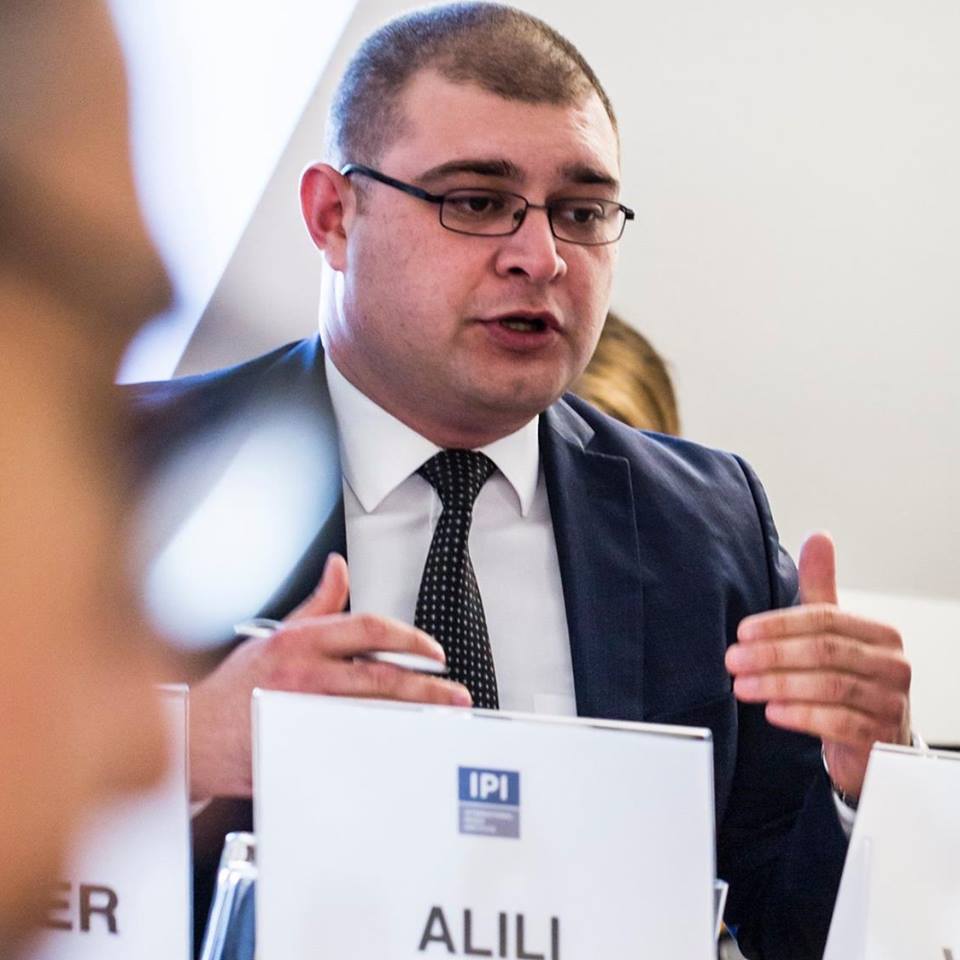  By Ahmad ALILI, Director, Caucasus Policy Analysis Centre, Baku By Ahmad ALILI, Director, Caucasus Policy Analysis Centre, Baku
Benyamin POGHOSYAN, PhD, Chairman, Center for Political and Economic Strategic Studies, Yerevan
On 31 August 2022, the leaders of Armenia and Azerbaijan, meeting in Brussels under the auspices of European Council president Charles Michel, agreed to authorise their foreign ministers to start immediate negotiations on a peace treaty. Instead, in less than two weeks, the two sides found themselves negotiating yet another ceasefire.
Armenia and Azerbaijan are slowly emerging from a long period of conflict. Over three and a half decades, tens of thousands died in fighting; hundreds of thousands of people were displaced; tens of thousands of landmines and other unexploded ordnance contaminated huge tracts of territory, and war and enmity became the standard narrative with both Armenians and Azerbaijanis. The 1st Karabakh War in the early 1990s resulted in massive loss of territory by Azerbaijan; the 2nd Karabakh War in autumn 2020 changed the reality on the ground for the second time, nearly, but not completely, restoring the status quo ante.
READ MORE
What to Expect From the Azerbaijani–Armenian Peace Process in 2023[Over]
 By Fuad SHAHBAZOV, Baku-based independent regional security and defence analyst By Fuad SHAHBAZOV, Baku-based independent regional security and defence analyst
The end of 2022 marked another round of confrontation between Azerbaijan and Armenia in the Karabakh region with the involvement of Russian peacekeeping forces. The standoff began in early December, when the Russian peacekeeping contingent in the separatist Karabakh region denied access to Azerbaijani officials from the Ministry of Economy, Ministry of Ecology and Natural Resources and the state-owned mining company AzerGold CJSC from carrying out on-site inspections of the Gizilbulag gold deposits and the Demirli copper-molybdenum deposits to evaluate potential risks to the environment. While Azerbaijani state officials were deprived of free movement inside the separatist portion of Karabakh by the peacekeeping mission, it fuelled skepticism in Azerbaijani and Armenian societies regarding Russia’s role in the process. READ MORE
The Georgian Perspective on Shifting Security Dynamics in the Caucasus[Over] 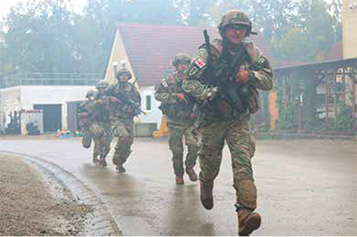 By Eugene KOGAN, Tbilisi-based defence and security expert By Eugene KOGAN, Tbilisi-based defence and security expert
Despite the ongoing Russian war against Ukraine and the continuing reassurances coming from NATO that Georgia’s interests are being taken into consideration, Georgia’s NATO accession process has come to an impasse. Instead of reaching a national consensus and keeping society united, the population remains divided and polarised. The only progress that can be highlighted is the forthcoming manufacturing of unmanned aerial vehicles and the establishment of a Cyber Security Command.
Difficult Realities
Notwithstanding the deceptive external calm vis-à-vis ongoing skirmishes between Armenia and Azerbaijan, Iran’s military exercises on the border with Azerbaijan, and Turkey’s ongoing operations against the PKK in Syria, Georgia remains vulnerable to any potential conflict with Russia. What is more, Georgia has no allies or partners that will come to its rescue in case of military conflict with Russia. Georgia is in a ‘grey area’ with respect to Russia, and will therefore need to rely on its own strengths and resourcefulness. READ MORE
- February 25, 2023 07:30AM
After the De-occupation of Kherson: Winter Break or Attack on Crimea?[Over]  By Nika CHITADZE, PhD, Director of the Center for International Studies, Tbilisi By Nika CHITADZE, PhD, Director of the Center for International Studies, Tbilisi
As it is known, the liberation of Kherson has already been assessed as a great military and an important political and psychological victory for Ukraine. Now it is possible to analyze what new opportunities this gives to the Ukrainian army and how things will develop. At the same time, the Russian forces launched a massive offensive in the Donetsk region, and are carrying out more intensive missile attacks against the critical infrastructure of Ukraine, as a result of which, first of all, the civilian population of the country is harmed and the victims are increasing more and more. With all of the above, the Russians want to somehow cover up the Kherson disaster. At the same time, it is worth noting the fact that the Russian army is insufficiently equipped and not ready for the winter war. This is the main reason why the Russians are asking for negotiations. According to them, depending on the situation on the front, the events may develop in two scenarios - the parties take the so-called winter break, or the armed forces of Ukraine develop an offensive to the south - first in the direction of Melitopol and Mariupol, and then in the direction of Crimea.
READ MORE
- February 16, 2023 11:38AM
EU’s New Observer Mission in Armenia: What Next?[Over]  By Benyamin POGHOSYAN, PhD, Chairman, Center for Political and Economic Strategic Studies By Benyamin POGHOSYAN, PhD, Chairman, Center for Political and Economic Strategic Studies
On January 23, 2023, the Council of the European Union agreed to establish a civilian European Union Mission in Armenia (EUMA) under the Common Security and Defence Policy. The mission’s objective is to contribute to stability in the border areas of Armenia, build confidence on the ground, and ensure an environment conducive to normalization efforts between Armenia and Azerbaijan supported by the EU. EUMA will have an initial mandate of two years, and its operational headquarters will be in Armenia. The first EU mission was deployed in Armenia in late October 2022 for two months. On December 19, 2022, the mission left Armenia, but discussions were underway for the deployment of a new, longer, and larger mission. READ MORE
- February 10, 2023 05:38AM
Armenia should Secure Deployment of New EU Observer Mission[Over]  By Benyamin POGHOSYAN, PhD, Chairman, Center for Political and Economic Strategic Studies By Benyamin POGHOSYAN, PhD, Chairman, Center for Political and Economic Strategic Studies
Since the end of the 2020 Nagorno-Karabakh war, Azerbaijan has pursued a strategy based on coercive diplomacy and military blackmail in negotiations with Armenia. Azerbaijan seeks to force Armenia to accept its two primary demands – to accept that Nagorno-Karabakh as a territorial administrative unit does not exist anymore and to provide Azerbaijan with a corridor via Syunik to reach the Nakhichevan Autonomous Republic. Military incursions into Armenia are one of the main tools used by Azerbaijan to push forward with its coercive strategy. As a result of multiple aggressive actions, Azerbaijan has occupied up to 200 square kilometers of Armenian territory. Russia and the CSTO provided muted reactions to Azerbaijani aggression, so Armenia decided to involve other international players to deter further attacks. READ MORE
Iran’s Drone Exports to Armenia Could Undermine Peace Process in Karabakh[Over]
 By Fuad SHAHBAZOV, Baku-based independent regional security and defence analyst By Fuad SHAHBAZOV, Baku-based independent regional security and defence analyst
The recent war of words between Azerbaijan and Armenia, and the developments of the last several weeks, have demonstrated that both sides are far from inking a peace deal, which was promised by the end of 2022. Although both states vowed to intensify joint efforts on the final peace treaty in October 2022 on the sidelines of the Prague summit, little has been done since. On the contrary, the failure to hold peace negotiations has been magnified by Russian President Vladimir Putin’s controversial statements regarding Moscow’s non-recognition of Azerbaijan’s sovereignty over Karabakh, which have immensely increased the risks of renewed hostilities between Baku and Yerevan. Although Russia maintains the role of “key mediator” on the Karabakh issue, Azerbaijan now openly demonstrates its discontent over Moscow’s role in the peace process, particularly after the merely symbolic meeting in Sochi on October 3. READ MORE
Post-Soviet Peace: We Demand Peace[Over] 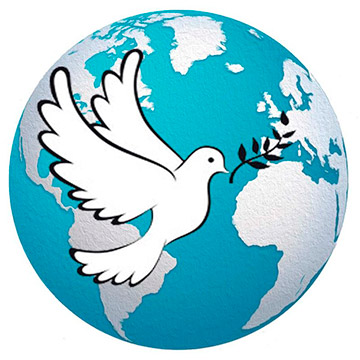 An open letter signed by people from Armenia, Azerbaijan, Russia, Turkey, and other countries An open letter signed by people from Armenia, Azerbaijan, Russia, Turkey, and other countries
We, a group of people who stand for peace, from the post-Soviet space and its neighbourhood exhausted by never-ending wars and growing imperialist rivalry on our territories, are full of rage as we have observed Azerbaijan’s recent large-scale attack on Armenia. This, coupled with Russian Federation’s attack on Ukraine and the renewed military clashes in border areas between Kyrgyzstan and Tajikistan, raises heavy concerns regarding possible future escalations not only in the Armenia-Azerbaijan conflict but all other conflicts in the post-Soviet space.
The recent attack on Armenia has costed hundreds of lives within two days from both sides of the conflict, caused serious destruction to civil infrastructure in Armenia, displaced thousands, and further widened the gap between the countries and their people. We raise our persistent voices against the continuing warfare. READ MORE
No Peace Is Possible with Zero Trust[Over]  By Benyamin POGHOSYAN, PhD, Chairman, Center for Political and Economic Strategic Studies By Benyamin POGHOSYAN, PhD, Chairman, Center for Political and Economic Strategic Studies
On December 12, 2022, Azerbaijan blocked the Lachin corridor, the only route connecting the self-proclaimed Nagorno Karabakh Republic with the outside world. The corridor is blocked by "eco–activists," who initially demanded access for the relevant Azerbaijani state institutions to monitor the copper-molybdenum mine in Nagorno Karabakh. They argued that Nagorno Karabakh authorities did not meet international standards. However, very soon, the list of demands started to increase – the resignation of the newly appointed state minister of the self-proclaimed Nagorno Karabakh Republic, Ruben Vardanyan, and the establishment of an Azerbaijani checkpoint in the Lachin corridor were among the new demands added. Anyone, who has at least a basic understanding of the Nagorno-Karabakh conflict, and has followed the developments there since the end of the 2020 Nagorno Karabakh war, has no doubts that what has been going on in the Lachin corridor for almost a month is connected with geopolitics, rather than benign environmental concerns. READ MORE
Can Armenians Agree on a Unified Strategy?[Over]  By Yeghia TASHJIAN, Beirut-based regional analyst and researcher, columnist, "The Armenian Weekly” By Yeghia TASHJIAN, Beirut-based regional analyst and researcher, columnist, "The Armenian Weekly”
Over the past few weeks, I participated in multiple international and regional workshops and conferences in Europe and Russia and met with many European, Azerbaijani, Turkish, Iranian and Russian experts and politicians. These opportunities and encounters made me realize that we as Armenians must adapt to a new reality, revise our strategy (if we have one) and try to confront the dangers with the resources that we have. The possibility of a new war with Azerbaijan is very high, but proactive diplomacy and deterrence can postpone a major military clash.
I also realized a change in attitude in many Azerbaijani experts. Of course, we cannot generalize, but from their perspective, Azerbaijanis still firmly believe that the Nagorno-Karabakh crisis has been resolved, which the West and Russia do not agree on. They do not have enough leverage to force their will on Baku, as Azerbaijan is playing its energy card very well for now. Azerbaijanis have come to realize that if they enforce their will over Nagorno-Karabakh and engage in ethnic cleansing, there will be international backlash. READ MORE
Balancing the mediators - Armenia and Azerbaijan should avoid offending Russia[Over]  By Benyamin POGHOSYAN, PhD, Chairman, Center for Political and Economic Strategic Studies By Benyamin POGHOSYAN, PhD, Chairman, Center for Political and Economic Strategic Studies
The trilateral statement of November 10, 2020, which ended the 2020 Karabakh war seemed to sideline the US and France, who with Russia had for decades co-chaired the OSCE Minsk Group, from involvement in any post-war conflict settlement arrangements. It established instead a Russian monopoly in mediating future arrangements in the region. Neither Washington nor France was involved in preparing the November 10 statement, while the deployment of Russian peacekeepers in Nagorno Karabakh fomented the role of Russia as the only security provider for Nagorno Karabakh Armenians. Armenia, Azerbaijan, and Russia signed another trilateral statement on January 11, 2021, focused on restoring communications. The leaders' November 26, 2021, summit aimed to promote a border delimitation and demarcation process. In late 2021, the West started taking small steps to re-insert itself in the negotiation process, with the President of the European Council organizing the first Aliyev – Pashinyan summit in Brussels. READ MORE
New US National Security Strategy and Implications for Armenia[Over]  By Benyamin POGHOSYAN, PhD, Chairman, Center for Political and Economic Strategic Studies By Benyamin POGHOSYAN, PhD, Chairman, Center for Political and Economic Strategic Studies
On October 12, 2022, the White House published President Biden’s first national security strategy. The document outlines the US’ primary goals for domestic and foreign policy and its future vision for the world. US national security strategies have been published every four years since the early 2000s, laying out the incumbent administration’s policy goals and strategic priorities. The 2002 and 2006 national security strategies were focused on the war on terror and democracy promotion. The Obama administration, while emphasizing democracy promotion, started to refocus the US’ attention on the Asia-Pacific region. Meanwhile, due to the 2014 Ukraine crisis, the February 2015 national security strategy included harsh rhetoric toward Russia. In December 2017, President Donald Trump focused his national security strategy on great power competition and US rivalry with China READ MORE
The CSTO and Azerbaijan’s recent aggression against Armenia[Over]  By Benyamin POGHOSYAN, PhD, Chairman, Center for Political and Economic Strategic Studies By Benyamin POGHOSYAN, PhD, Chairman, Center for Political and Economic Strategic Studies
Azerbaijan launched a new, large-scale aggression against Armenia on September 13, and the absence of tangible actions by the CSTO to stop Azerbaijan’s attacks have reinvigorated discussions in Armenia about the country’s potential withdrawal from the CSTO. This recent wave of public discontent in Armenia about the CSTO coincided with a visit to Armenia by U.S. House Speaker Nancy Pelosi, which added a geopolitical component to the discussions, given the complete rupture of relations between the United States and Russia. On the very day of Azerbaijan’s aggression, Armenia officially appealed to the CSTO, based on article 4 of the treaty, asking for support, including by military means. READ MORE
The Ups and Downs in Iran Nuclear Deal Negotiations[Over]  By Benyamin POGHOSYAN, PhD, Chairman, Center for Political and Economic Strategic Studies By Benyamin POGHOSYAN, PhD, Chairman, Center for Political and Economic Strategic Studies
Since April 2021, Iran and other signatories of the 2015 nuclear deal (commonly known as JCPoA) have been engaged in active negotiations to restore it. President Biden’s administration declared its intention to move forward in that direction almost immediately after coming to power in January 2021. Many representatives of the Obama administration, who were personally involved in the negotiations from 2013 to 2015, received new positions in the Biden administration, and their desire to restore what they achieved in 2015 was quite understandable. Besides personal motives, the two and half years of the “maximum pressure campaign” against Iran launched by President Trump did not bring any tangible results. READ MORE
- September 27, 2022 08:29AM
Restoration of Military Balance between Armenia and Azerbaijan[Over]  By Benyamin POGHOSYAN, PhD, Chairman, Center for Political and Economic Strategic Studies By Benyamin POGHOSYAN, PhD, Chairman, Center for Political and Economic Strategic Studies
Almost every war, short or long, ends at the negotiation table. There are exceptions to this rule, like World War II, which ended with the capitulation of Nazi Germany and Japan. However, the capitulation of one side is an unlikely scenario for the Nagorno Karabakh conflict. Azerbaijan suffered significant defeat during the first Karabakh war in the early 1990s but did not sign the capitulation. Armenia faced almost the same fate in 2020, and while Azerbaijan and some experts in Armenia argue that the November 10, 2020, trilateral statement was a capitulation for Armenia, there was no formal capitulation. Since the end of the 2020 Karabakh war, Armenia and Azerbaijan have been negotiating to reach a long-lasting solution. Russia, and since mid-2021, the EU have acted as primary mediators, organizing several high-level summits and hectic behind-the-scenes actions to facilitate the process. READ MORE
- September 9, 2022 06:30AM
The South Caucasus and the “Great Game” of Energy Security[Over]  By Yeghia TASHJIAN, Beirut-based regional analyst and researcher, columnist, "The Armenian Weekly” By Yeghia TASHJIAN, Beirut-based regional analyst and researcher, columnist, "The Armenian Weekly”
The “Great Game” was a political and diplomatic confrontation that existed for most of the 19th century and the beginning of the 20th century between the British Empire and the Russian Empire over Afghanistan and Central Asia, aiming to control trade routes in India. Almost a century later, with the dissolution of the Soviet Union, the “Game” returned, and a fierce competition arose between the Russians and the Americans and their Western allies to control the oil and gas fields and pipelines in the South Caucasus. READ MORE
- September 2, 2022 08:38AM
Iran’s "Game of Drones" in the Middle East[Over]
 By Fuad SHAHBAZOV, Baku-based independent regional security and defence analyst By Fuad SHAHBAZOV, Baku-based independent regional security and defence analyst
Amid mounting domestic unrest and ongoing diplomatic standoffs with regional states, Iran has devoted a significant and increasing amount of national resources toward upgrading its national drone program. On May 17, the Iranian government officially inaugurated its first overseas drone factory in Dushanbe, Tajikistan; the facility manufactures the indigenous Ababil-2, a multipurpose drone model with reconnaissance, combat, and suicide capabilities. The Ababil-2 boasts a maximum range of 200 kilometres and can sustain roughly 90 minutes of flight time. The new drone factory will help Iran to improve relations with Tajikistan after a period of lingering diplomatic tension, and General Mohammad Bagheri described its inauguration as a turning point in bilateral military cooperation between the two countries. READ MORE
Scenarios for the Future of Nagorno Karabakh[Over]  By Benyamin POGHOSYAN, PhD, Chairman, Center for Political and Economic Strategic Studies By Benyamin POGHOSYAN, PhD, Chairman, Center for Political and Economic Strategic Studies
In late May 2022, Armenia and Azerbaijan established national commissions for border delimitation and demarcation. The two countries are close to signing a deal on the restoration of communications and will soon launch negotiations on elaborating a bilateral agreement. Currently, experts and societies wonder what these developments mean for the future of the self-proclaimed Nagorno Karabakh Republic. Discussions are underway, and different ideas have been put forward. Some Azerbaijani experts started to circulate the possibility of autonomy for Nagorno Karabakh, hinting that Azerbaijan may change its post-2020 war rhetoric, denying the existence of Nagorno Karabakh and claiming that the issue of status was thrown into the dustbin of history. There is a lack of details on what this autonomy could be. READ MORE
The Perils of Black Sea Security[Over] 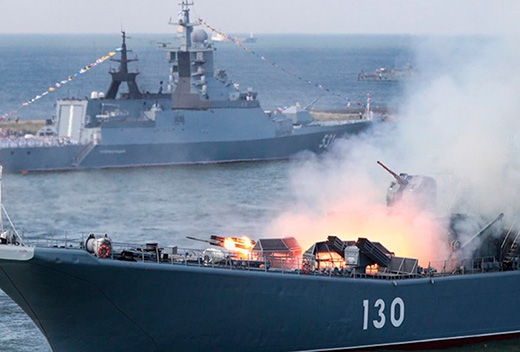 By Eugene KOGAN, Tbilisi-based defence and security expert By Eugene KOGAN, Tbilisi-based defence and security expert
The unprovoked Russian invasion of Ukraine on February 24th, 2022 has substantially changed the security situation around the Black Sea. The three NATO member states Bulgaria, Romania, and Turkey have pursued a very different and distinct policy with regard to Russia. Bulgaria, as will be further presented, remains dependent on Russian gas and oil. Despite the recent Russian decision to halt gas exports to Bulgaria over the country’s refusal to pay for supplies in roubles, Bulgaria did not buckle under pressure. Romania maintains a watchful eye after the Russian military operations along the Black Sea coast, in general, and the city of Odessa, in particular. Turkey maintains balanced relations with Russia and Ukraine. READ MORE.
Peacekeeping in Karabakh Can Learn from the UNOMIG Experience[Over]  By Benyamin POGHOSYAN, PhD, Chairman, Center for Political and Economic Strategic Studies By Benyamin POGHOSYAN, PhD, Chairman, Center for Political and Economic Strategic Studies
As Armenia and Azerbaijan come closer to launching bilateral negotiations over the normalisation of relations, many issues wait for a solution. Currently, the hottest debates are underway regarding the future status of Nagorno Karabakh and the legal modalities of the transit for Armenian and Azerbaijani goods passing each other territories. The war in Ukraine and the complete collapse of Russia – West relations added geopolitical components to the equilibrium. Do we have EU – Russia competition over the mediation process? Are there any disagreements between Brussels and Moscow on promoting lasting peace and stability in the South Caucasus? All these issues are worthy of being discussed and debated. READ MORE
Lack of Results in Armenia-Azerbaijan Talks Can Quickly Lead to Renewed Violence[Over]
 By Fuad SHAHBAZOV, Baku-based independent regional security and defence analyst By Fuad SHAHBAZOV, Baku-based independent regional security and defence analyst
On May 12, the Foreign Ministers of Azerbaijan and Armenia held another meeting in Dushanbe, Tajikistan, on the side-lines of the Russia-led Commonwealth of Independent States Ministerial summit, and with the participation of the Russian foreign minister. Although Armenian Foreign Minister Ararat Mirzoyan characterized the meeting as another “productive interaction” between the warring parties, little progress has been made in the peace negotiations between Baku and Yerevan since the 6 April meeting of the leaders of the two countries in Brussels. READ MORE
Pashinyan and Aliyev Meet in Brussels Again: What Next[Over]  By Benyamin POGHOSYAN, PhD, Chairman, Center for Political and Economic Strategic Studies By Benyamin POGHOSYAN, PhD, Chairman, Center for Political and Economic Strategic Studies
On May 22, 2022, Armenian Prime Minister Pashinyan and Azerbaijani President Aliyev met in Brussels. The meeting was facilitated by the President of the European Council Charles Michel. For many observers, the May 22 trilateral meeting created a feeling of déjà vu. The same leaders were in Brussels less than two months ago. On April 6, 2022, Michel organized another meeting between Armenian and Azerbaijani leaders with the same sequence and results. Michel met separately with two leaders, then they held hours-long trilateral discussions, and late in the night, he published a statement summarizing the results. On April 6, participants discussed the same issues as on May 22 – the restoration of communications, the start of the border delimitation and demarcation process, and the launch of negotiations to sign a bilateral Armenia-Azerbaijan treaty. READ MORE
A Transitional Arrangement for Karabakh May Be Necessary[Over]  By Benyamin POGHOSYAN, PhD, Chairman, Center for Political and Economic Strategic Studies By Benyamin POGHOSYAN, PhD, Chairman, Center for Political and Economic Strategic Studies
The issue of the status of Nagorno Karabakh cannot be avoided in future discussions on an Armenia-Azerbaijan bilateral peace treaty. One solution is to agree to some transitional arrangement.
The April 6 Brussels meeting between Armenian Prime Minister Nikol Pashinyan and Azerbaijani President Ilham Aliyev gave the Armenia – Azerbaijan negotiations new momentum. The sides agreed to establish a border delimitation and demarcation commission and take steps to launch negotiations over the signature of a bilateral peace treaty. These issues were also agreed upon in principle back in November 2021, when two leaders had a meeting in Sochi facilitated by Russian President Vladimir Putin. READ MORE
Black Sea Security in Times of War[Over] 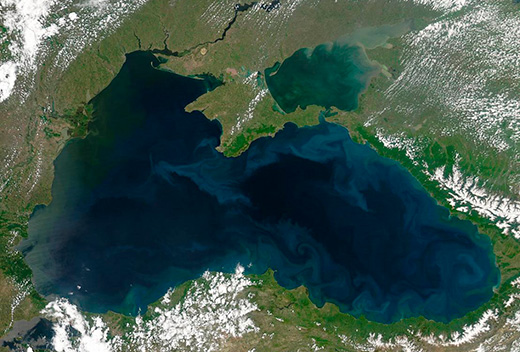 By Eugene KOGAN, Tbilisi-based defence and security expert By Eugene KOGAN, Tbilisi-based defence and security expert
There is no doubt that the ongoing Russian military action against Ukraine profoundly affects the rest of the Black Sea littoral states: Bulgaria, Georgia, Romania and Turkey. The tense standoff of recent weeks placed each of them in a difficult position between apprehension and, particularly with Turkey, a kind of peacemaker or rather mediator, which Russia now ignores completely.
Romanian Defence Minister, Vasile Dincu, said in January 2022 that “Russia, at the moment, is not a direct threat to Romania, but it is [rather] a threat to security in the [Black Sea] area”. The author disagrees with the minister’s statement since the Russian military, which is stationed on the occupied Crimean peninsula - not much more than 100 km from the Danube Delta – is a direct threat to Romania, even though Russian officials will blame the other side for posing a threat to Russia. Furthermore, the region’s three NATO member countries, namely Bulgaria, Romania and Turkey, have until today been unable to create and implement a comprehensive Black Sea security strategy together with NATO aspirants Georgia and Ukraine to counter the challenges posed by Russia. The latter, however, successfully implemented its divide and rule policy in the region. READ MORE.
|
|